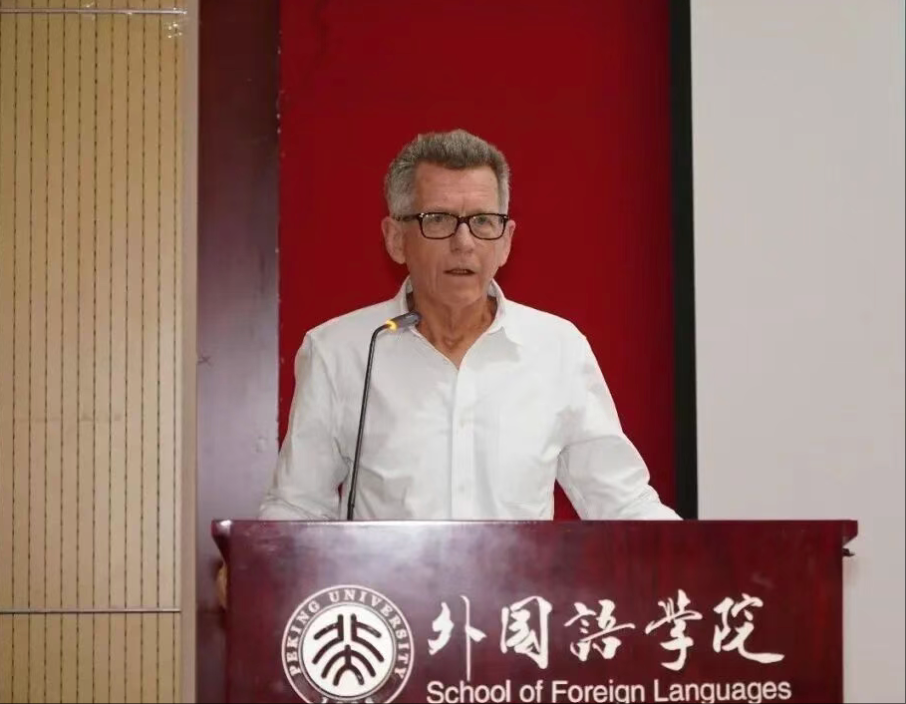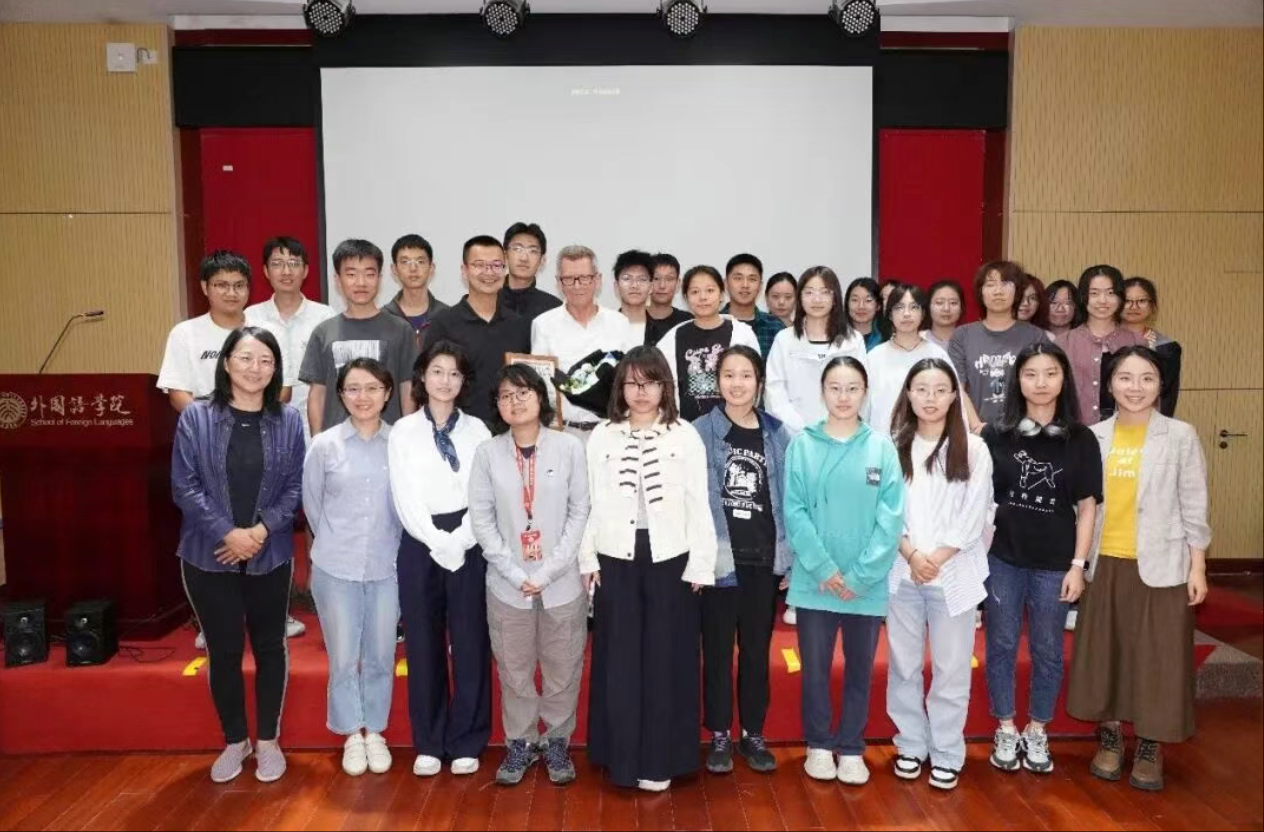
The 64th lecture in the "Adventus Amicorum" seminar series, titled "On Nations, Empires, and the World. New Contexts of German Studies", was held on September 29th. The lecture was delivered by Prof. Albrecht Koschorke, a professor of German literature and comparative literature at the University of Konstanz, Germany, and hosted by Mao Mingchao, a tenured associate professor in the German Department of the School of Foreign Languages, Peking University.
Prof. Koschorke’s lecture focused on the crises, theoretical frameworks, and transformations in research paradigms within language and literary studies. He first analyzed the existential crisis faced by German language teaching and the humanities as a whole in Europe and the US. He then pointed out that the rise and fall of language and literature was not a natural process, but somewhat dependent on political and institutional frameworks. Taking German studies as a typical case, Prof. Koschorke outlined the historical context, characteristics, and inherent contradictions of the formation of national languages. Furthermore, he compared the differences in spatial attributes and cultural logic between empires and nation-states, revealing the limitations of language and literary studies when divorced from political history. The professor argued that, unlike nation-states, empires allow the existence of heterogeneous forces within their territories and possess an inherent openness. Learners and educators of language need to reflect on breaking the limitations of national narratives and inherit the specific, positive cultural legacies of empires. Literary studies, he suggested, should transcend the national paradigm, focus on transnational connections, and draw inspiration from the "Republic of Letters" among European scholars as a valuable model.
The lecture first focused on the current crisis in language and literary studies: language education was in decline worldwide, and interest in German language and literature among European countries had waned. This decline was not solely driven by the impact of English, as enrollment in English majors in the US had also decreased. The 2008 financial crisis was widely regarded as a turning point for this trend, and the COVID-19 pandemic had further exacerbated the situation. The development of generative artificial intelligence (AI) has advanced machine translation, but it has also disrupted language teaching. More notably, the crisis was not confined to philology; the humanities as a whole were under threat, increasingly dismissed as lacking practical value and failing to provide learners with a reliable path for career development.
Prof. Koschorke emphasized that the rise and fall of language and literature was not a natural evolution, but was profoundly shaped by political and institutional frameworks. By reviewing European history, he noted that "national languages" were both products of nation-state building and drivers of national identity formation. Between the 17th and 18th centuries, classics of German literature began to emerge. Prof. Koschorke reaffirmed that "classical literature" canonized and formalized linguistic expression, promoting the formation of the German national language, which in turn facilitated the development of German national identity and political unification.
Prof. Koschorke pointed out that the "paradigm of national and national literature" gradually formed in this process had overlooked the imperial traditions of Germany and Europe. Nation-states are political entities with clear boundaries, striving to align political, ethnic, linguistic, and cultural boundaries as closely as possible. In contrast, empires were looser entities more shaped by imbalances and gradients between the center and the periphery, as well as a lack of unified internal cohesion. This asymmetry between the center and the periphery was the core feature of an empire functioning as a power space. Culturally, empires generally regarded themselves as ethnically and linguistically heterogeneous entities; this heterogeneity did not undermine their rule, but in many cases, strengthened it. In short, nation-states had clear boundaries, while empires had "soft borders" and were relatively more open.
In response to the crisis in German language teaching, Prof. Koschorke proposed "German literature as an 'imperial’ discipline", which was that language and literature teaching should transcend the national paradigm and return to the historical context of empires. He did not advocate imperialist policies, but rather to inherit specific positive cultural legacies of empires. Contemporary learners need to break free from traditional national narratives, cross linguistic boundaries, maintain openness, and revert to the inclusive traditions of empires. In studying medieval literature, attention should be paid to the Latin tradition; in researching early modern and modern literature, emphasis should be placed on integrating elements from other national languages. The "Republic of Letters"—an intellectual community that transcends national and ethnic boundaries—serves as a paradigmatic example. This represented a paradigmatic transformation in German language learning, enabling a more authentic understanding of the evolutionary logic of the German language and the value of German studies.

Prof Koschorke’s lecture attracted over 30 students and teachers who attended in person, as well as more than 80 online viewers. Following the lecture, the professor engaged in discussions with students and teachers, addressing questions on topics such as the study of the German language and German studies, the Greco-Roman traditions in German literary culture, the influence of non-Christian cultures (e.g., Norse mythology) on German literary culture, Slavic-German connections, and the boundaries of Europe.


